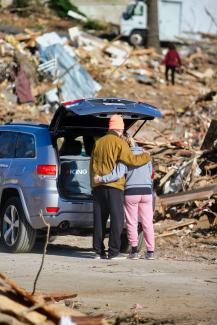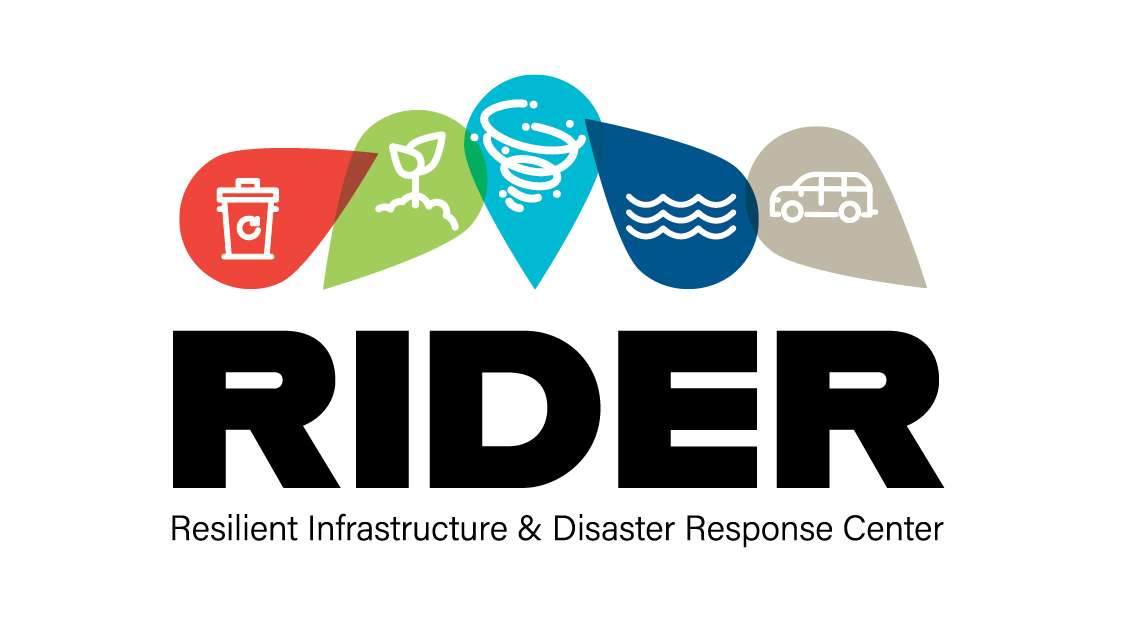
FAMU-FSU Calls Together Collaborative Dean’s Panel for Workshop funded by NSF RCN Grant: Natural Disasters: Bridging the Resilience Divide Research Study
Research in Real Time: Natural Disasters virtual workshop brought together researchers from different fields to explore adaptive resilience for Gulf coastal communities. This workshop was funded by the National Science Foundation (NSF) Research Coordination Network (RCN) awarded project, which aims to foster a new understanding of the complex interactions among the key elements of community resilience in rural coastline areas. Dr. Eren Ozguven, the director of the Resilient Infrastructure & Disaster Response Center at FAMU-FSU College of Engineering, stated that the workshop had a variety of presentations canvassing multiple disciplines as well as a dean's panel with deans from four different colleges, showing the multi-disciplinary strength of the two universities. The goal was to gather academicians, practitioners, and community members to identify the challenges faced by our communities against disasters and come up with methodologies to solve these problems.
|
Dr. Eren Ozguven, Associate Professor and Director of the RIDER Center |
Ellen Piekalkiewicz, Instructional Specialist and Director of the Center for the Study and Promotion of Communities, Families, & Children |
 |
 |
The program began with a welcome message by Dr. Ozguven, followed by introductions from Dr. Bruce Hamilton and Dr. Stacy Patterson. Dr. Hamilton, a program director at the NSF, and Dr. Patterson, the Vice President for Research, set the stage for the workshop by highlighting the importance of the NSF RCN grant in bridging the resilience divide research study. The event included a Deans Panel featuring Dr. Craig Stanley, Dr. Suvranu De, Dr. Timothy Chapin, and Dr. Jeffery Joyce. The deans represented different colleges, including social work, engineering, medicine, social sciences and public policy. This panel discussed the importance of collaborative efforts and the role of their respective fields in enhancing community resilience in the face of natural disasters.
After the panel, the program broke out into three separate virtual breakout rooms to discuss specific topics related to the workshop. Participants had the opportunity to engage with experts in different fields and share ideas on how to enhance community resilience. The first breakout room focused on healthcare and social services. Attendees discussed rural resiliency hubs in public libraries, shelter access in Southeastern US, and the outcomes of a highly relevant international workshop on aging, technology, and disaster response. The next breakout room concentrated on public policy and administration. This room studied hurricane preparedness and evacuation orders, recovery amid COVID-19, and how to most efficiently plan essential processes for adaptive community resilience. The last breakout room focused on engineering and discussed post-disaster data collection planning for debris management, spatial data for understanding determinants of social vulnerability against pandemics and hurricanes, and the intersection of hurricanes and human respiratory health. Overall, the breakout rooms were a huge success and allowed participants the opportunity to learn and share ideas valuable to bridging the resilience divide.
The event wrapped up with the NSF Research Team, which included Dr. Ozguven, Dr. Tian Tang, Dr. Tarek Abichou, and Ellen Piekalkiewicz. They summarized the discussions from the breakout sessions and reiterated the importance of multi-disciplinary collaboration in addressing the challenges faced by communities in the Gulf coast region.
Ultimately, the Research in Real Time: Natural Disasters virtual workshop was a productive and informative event that brought together experts from different fields to discuss community resilience in the face of adversity. The NSF RCN grant played a crucial role in funding this event and fostering multi-disciplinary collaborations. This workshop sets a positive example for future collaborations, bringing together academicians, practitioners, and community members to identify the challenges faced by our communities against disasters and find solutions to these problems.



